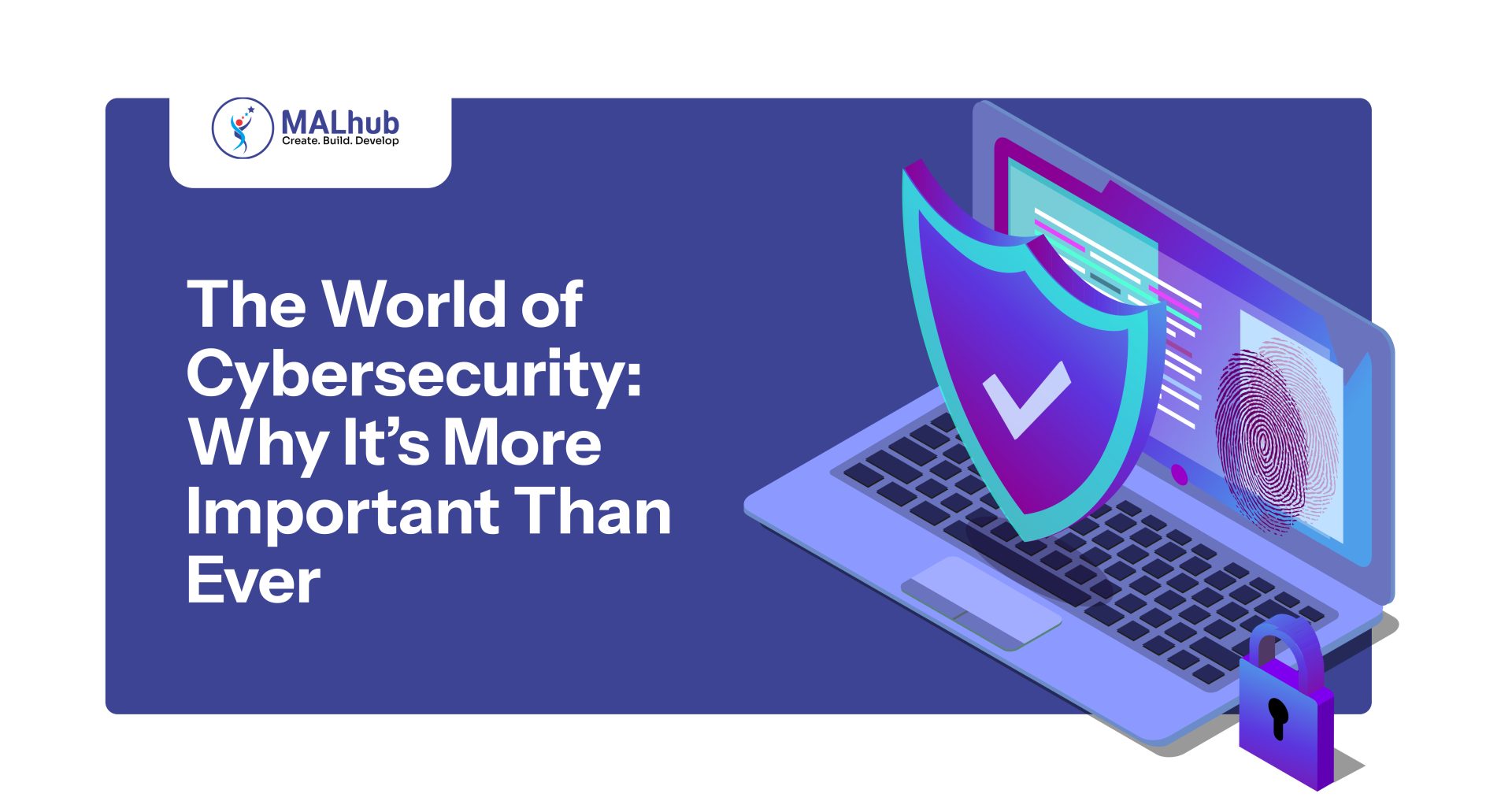Cybersecurity is now a major concern for individuals, businesses, and governments in today’s world. As technology advances, so do cyber-criminals’ methods and motivations. From securing personal information to protecting critical infrastructure, cybersecurity has never been more crucial. This article will explain the importance of cybersecurity, why it matters now more than ever, and provide actionable steps to build a secure digital environment.
What is Cybersecurity?
Cybersecurity is the protection of computer systems, networks, and data from unauthorized access, theft, damage, or disruption. It includes various technologies, processes, and practices that aim to prevent, detect, and respond to cyber threats, such as malware, phishing, ransomware, or cyber espionage. It involves various strategies and technologies designed to protect data, networks, and systems. At its core, it protects categories of data that include sensitive personal information, health records, intellectual property, and even government and industry-specific information.
Effective cyber-security doesn’t only prevent cyber threats attacks; it also ensures systems run smoothly, builds customer trust, and maintains privacy. But with cyber threats on the rise, understanding and implementing strong measures is more important than ever.
Why is Cybersecurity More Important Than Ever?
As human dependence on technology increases, so does the problem of cyber threats. Below are some major reasons why its important in today’s world:
- Increasing Cyber Threats: The digital landscape is continuously evolving, and so are the tactics employed by cyber-criminals. From phishing and ransomware attacks to advanced persistent threats, cyber-criminals are constantly finding new ways to infiltrate systems. Protecting against these threats requires a proactive and innovative approach to it.
- Rise of Remote Work: With the rise of remote work, more companies have adopted cloud storage, remote networks, and digital tools that create vulnerabilities if not adequately secured. Remote work has increased the potential for cyber threats, making its practices crucial for both employers and employees.
- Protection of Personal and Sensitive Data: The consequences of a data breach can be severe, both financially and reputationally. It safeguards sensitive data like personally identifiable information (PII), health records, and payment information from being stolen or misused. Businesses need internet security to protect not only their data but also that of their clients.
- Safeguarding Critical Infrastructure: Critical industries, from healthcare and finance to energy and transportation, rely on cyber-security to protect their infrastructure from potential disruptions. Cyber threats in these sectors can have widespread impacts, affecting vital services that society relies on daily.
- Increased Digital Transactions: As digital transactions become the norm, internet security is vital for protecting financial information and preventing fraud. From e-commerce to mobile banking, ensuring the security of online transactions is important to maintaining customer trust.
Check out this article on The Future of Work: How Automation and AI Will Change the Job Market to learn more about how AI will shape job opportunities and skills in the years to come.
Proven Tips for Enhancing Cybersecurity
Cyber threats are always evolving, and the following are some of the best practices that can help you stay ahead:
- Educate Yourself and Your Team: A well-informed technical team is your first line of defense. Conduct regular training sessions to educate yourself and your staff on recognizing phishing emails, secure password practices, and safe browsing habits.
- Utilize Strong Passwords and Two-Factor Authentication (2FA): Weak passwords are one of the easiest ways for hackers to gain access. Use complex passwords and enable 2FA wherever possible to add an extra layer of security.
- Regularly Update Software and Systems: Keeping software up to date ensures that security patches are applied to fix vulnerabilities. Outdated software is an easy target for cyber-criminals, so set systems to update automatically or implement a regular schedule for updates.
- Use a Secure Network: Ensure your network is secure, especially when working remotely. Public Wi-Fi can be convenient but is often less secure. If you must use it, consider employing a VPN (Virtual Private Network) for added security.
- Implement Data Backup and Recovery Plans: Regularly back up your data to minimize the damage from a potential cyberattack. Having a reliable data recovery plan can significantly reduce downtime and prevent data loss during a cyber incident.
- Monitor for Suspicious Activity: Using monitoring software can help detect unusual behaviour in your network. By identifying and responding to threats early, you can prevent significant damage.
- Limit Access Control: Not everyone in your organization needs access to sensitive information. Assign access based on roles, and ensure that only those who need the information for their job have access.
- Secure Mobile Devices: Mobile devices are often overlooked in cybersecurity plans. Encourage staff to use strong passwords, enable screen locks, and avoid connecting to insecure networks.
- Run Regular Security Audits: Regular audits can be used to identify potential vulnerabilities in your system before they can be exploited. This proactive approach allows you to stay ahead of potential threats.
- Invest in Cybersecurity Tools and Training: Investing in quality protection software and training can make a significant difference in your overall security posture. Look for reliable antivirus programs, firewalls, and secure cloud solutions.
Visit our article on the Ethical and Security Implications of AI Adoption to explore the balance between opportunity and responsibility in AI adoption.
Cybersecurity as a Career: Is it Right for You?
The demand for cybersecurity professionals is increasing rapidly, and now is a better time to consider a career in it. Skilled professionals are critical for maintaining the digital security of businesses, and many companies are willing to invest in trained experts who can help them avoid costly cyber threats.
At MALhub, we offer comprehensive cybersecurity courses that cover essential skills, from the basics of data protection to advanced threat detection. By joining our training program, you’ll gain hands-on experience, practical skills, and a clear path to start or advance your career in this high-demand field.
Why Choose MALhub’s Cybersecurity Program?
- Practical Oriented Training: Our courses go beyond theory, offering hands-on training with the latest internet security tools and methodologies. You’ll be equipped with skills that employers value, making you job-ready from day one.
- Expert Mentorship: Learn from industry professionals who understand the demands of the field. Our mentors provide personalized guidance, helping you tackle complex cyber-security challenges with confidence.
- Flexible and Accessible Learning: Our virtual courses are designed for accessibility, making it easy to learn no matter where you are. With flexible schedules, you can learn at your own pace, fitting your studies around your current commitments.
Take the Next Step with MALhub
Are you ready to embark on a cyber-security journey? MALhub’s training program provides the knowledge, tools, and support you need to succeed in this essential field. Equip yourself with the skills that can protect data, prevent breaches, and create safer digital environments for everyone.
Secure your future with MALhub and Start building a career that matters!
















